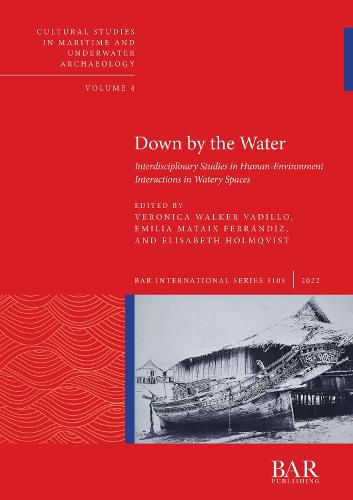Readings Newsletter
Become a Readings Member to make your shopping experience even easier.
Sign in or sign up for free!
You’re not far away from qualifying for FREE standard shipping within Australia
You’ve qualified for FREE standard shipping within Australia
The cart is loading…






This title is printed to order. This book may have been self-published. If so, we cannot guarantee the quality of the content. In the main most books will have gone through the editing process however some may not. We therefore suggest that you be aware of this before ordering this book. If in doubt check either the author or publisher’s details as we are unable to accept any returns unless they are faulty. Please contact us if you have any questions.
Waterways have been key factors in the development of societies from prehistoric times, particularly due to their role as vectors for cultural interactions, material exchange, and transmission of knowledge. The fluidity of these highways of transport and communications is tightly linked to the presence of transit points: spaces with unique geographical characteristics that acted as nodal points between different communities. Transit points are thus defined as places of intense social contacts, putting objects of physical geography into the domain of social sciences and humanities. The subject is challenging, as activities that happen in aquatic spaces seldom leave substantial archaeological traces behind. Nevertheless, by focusing on the intersection between humans and their environment down by the water, this book demonstrates what can be achieved by changing the research paradigm to one that fully embraces the nuances of the aquatic world, and especially the intricate connection between society and waterscapes.
$9.00 standard shipping within Australia
FREE standard shipping within Australia for orders over $100.00
Express & International shipping calculated at checkout
This title is printed to order. This book may have been self-published. If so, we cannot guarantee the quality of the content. In the main most books will have gone through the editing process however some may not. We therefore suggest that you be aware of this before ordering this book. If in doubt check either the author or publisher’s details as we are unable to accept any returns unless they are faulty. Please contact us if you have any questions.
Waterways have been key factors in the development of societies from prehistoric times, particularly due to their role as vectors for cultural interactions, material exchange, and transmission of knowledge. The fluidity of these highways of transport and communications is tightly linked to the presence of transit points: spaces with unique geographical characteristics that acted as nodal points between different communities. Transit points are thus defined as places of intense social contacts, putting objects of physical geography into the domain of social sciences and humanities. The subject is challenging, as activities that happen in aquatic spaces seldom leave substantial archaeological traces behind. Nevertheless, by focusing on the intersection between humans and their environment down by the water, this book demonstrates what can be achieved by changing the research paradigm to one that fully embraces the nuances of the aquatic world, and especially the intricate connection between society and waterscapes.